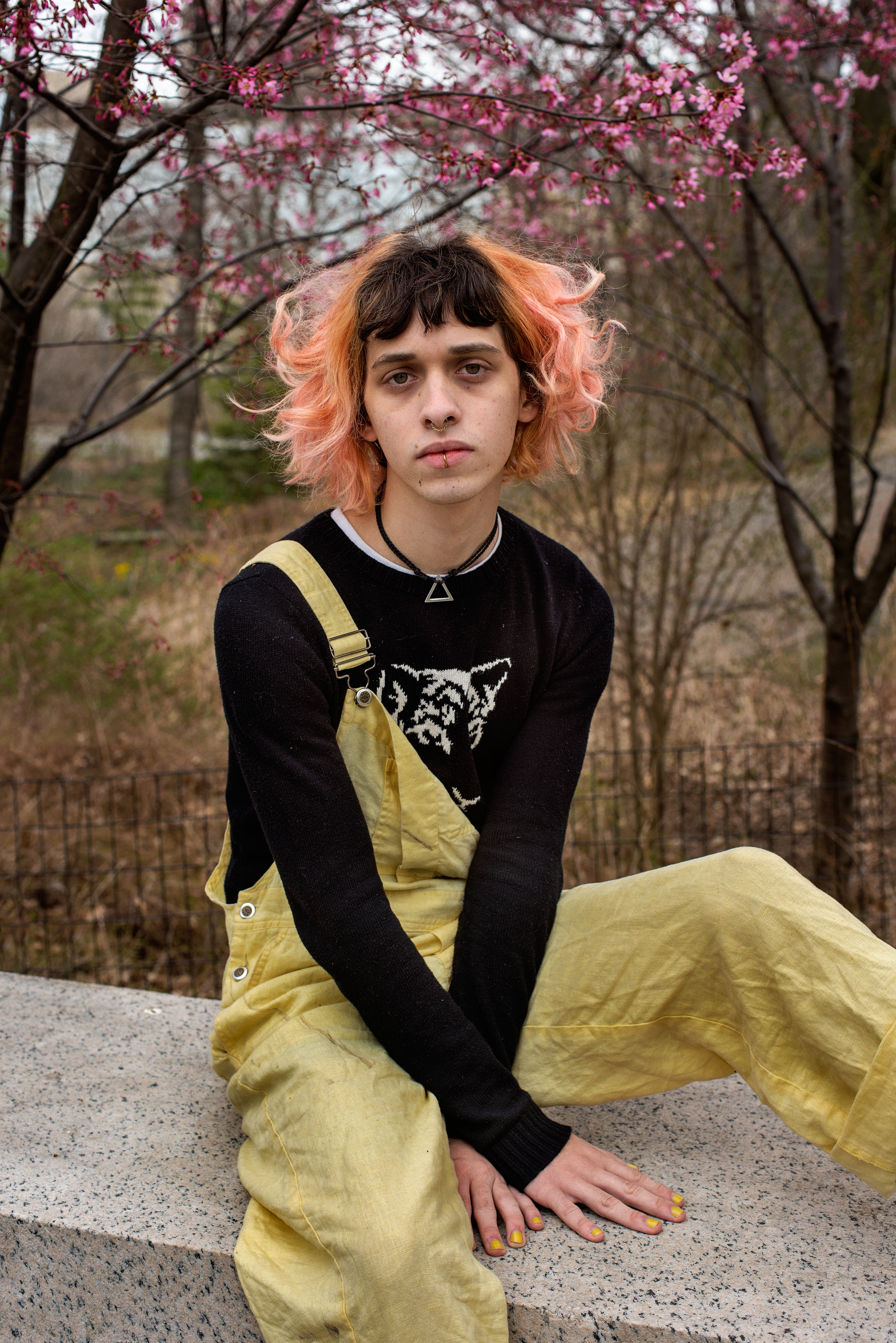
Elle Pérez. Hobbes, 2015/2018. Archival Pigment Print; 44 3⁄8 × 31 × 2 inches (112.71 × 78.74 × 5.08 cm). Image courtesy of the artist and 47 Canal, New York.
“I always forget that I can use my actual life in my work,” Elle Pérez says to me, in the kitchen of their live-work studio space in Brooklyn. Pérez is putting together lunch—a salad, sauteed broccoli, and a rosy slab of perfectly seared salmon—while their cat bats a paw over my tape recorder. In Pérez’s earlier practice, making art was often about being in the right place at the right time: a queer sanctuary in Tennessee; backstage at nightclubs and the ballroom scene; ringside at entertainment-wrestling matches in the Bronx. “But it’s about looking at what’s closest to you,” Pérez continues. “Look under your nose! Just look down!” Their most recent body of work, in contrast to the site-specific shoots they’ve worked with before, considers how the themes and formal qualities that interest them are embedded in the fabric of ordinary life.
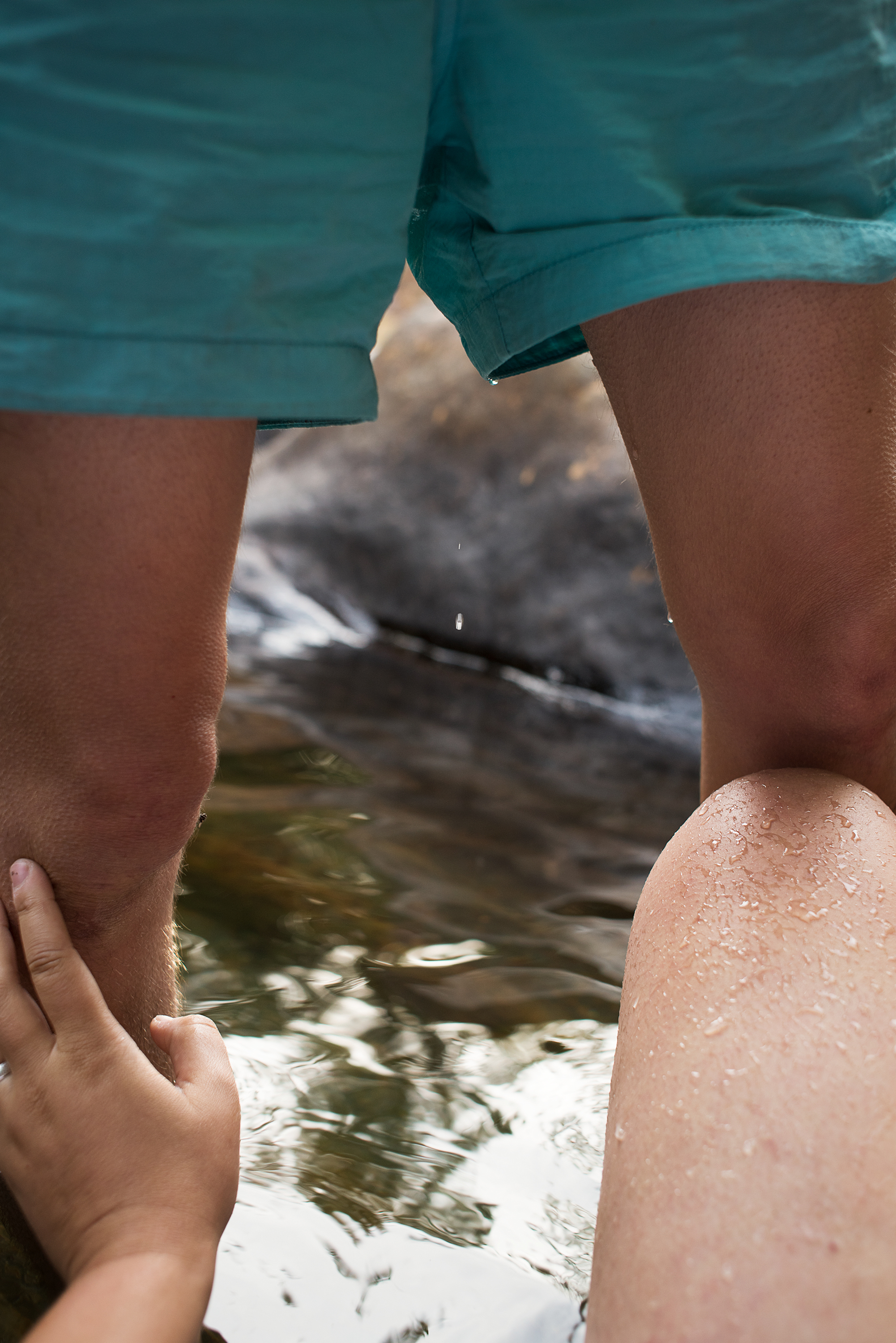
Elle Pérez. Water body, 2016/2018. Archival Pigment print; 44 3⁄8 × 31 inches (112.71 × 78.74 cm). Image courtesy of the artist and 47 Canal, New York.
“Pérez is motivated by more than representation.”
Pérez’s words might surprise viewers first encountering the young Puerto-Rican American photographer’s work. Their images—intimately wrought slices of life and portraits of the artist’s friends and community—can appear effortless and naturalistic, akin to documentary photography. Yet Pérez is motivated by more than representation. Carefully staged, and often the result of collaboration between photographer and subject, their work depicts the undercurrents of language, expression, and performance that transform us into who we constantly seek to become. In an open conversation, centered on the subject, Pérez creates portraits that illuminate both character and agency.
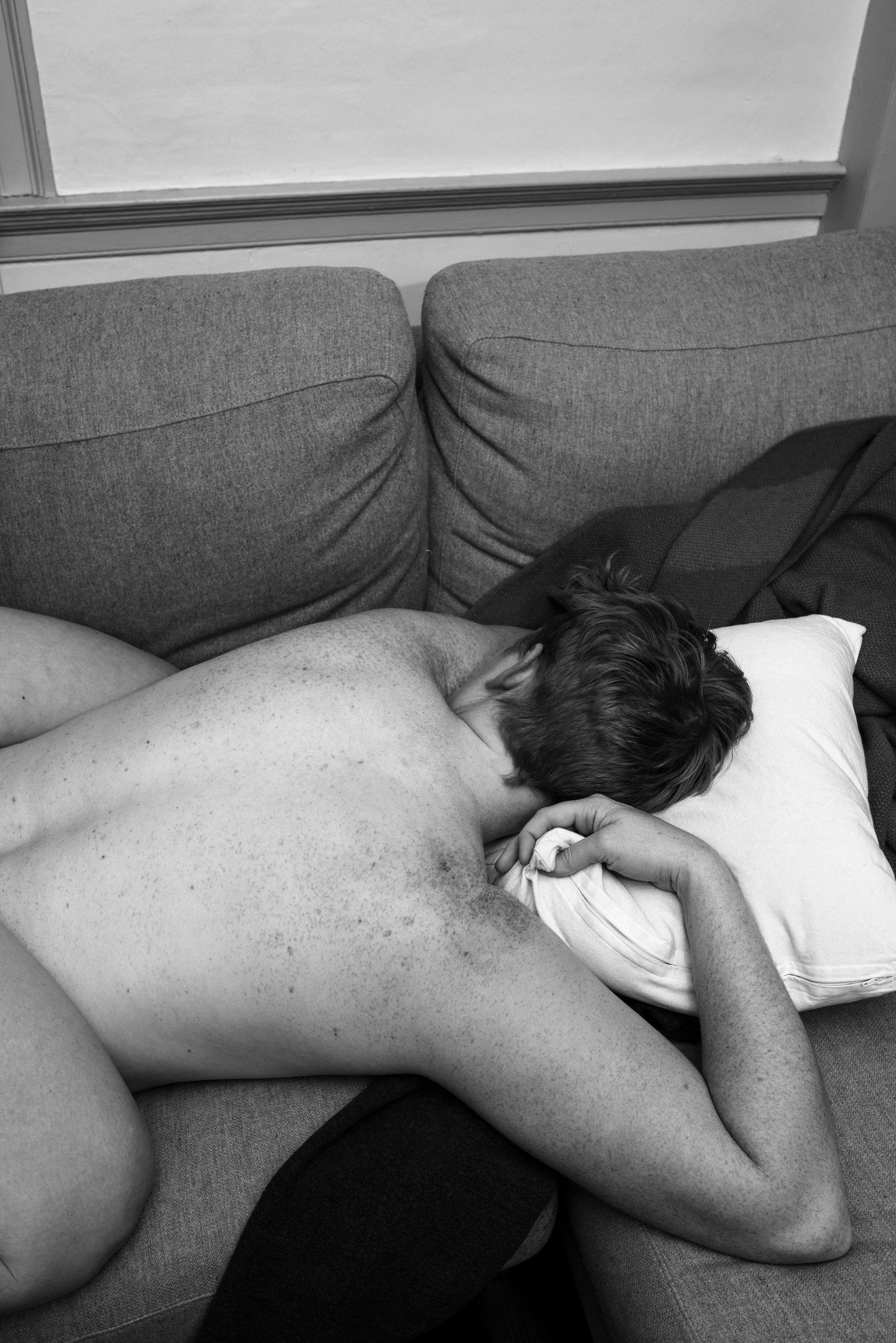
Elle Pérez. Tattoo Elizabeth, 2016/2018Digital Silver Gelatin print; 44 3⁄8 × 31 inches (112.71 × 78.74 cm). Image courtesy of the artist and 47 Canal, New York.
In one black-and-white photograph, a person lies on a couch, their face turned away from the camera. Outside of the frame, someone straddles their back, knees bent. The focal point of the image is the first person’s hand, which curls protectively around the edge of a pillow. It’s a snapshot of intimate, unknowable grace: the subject’s face turned away, fingers clenched in anticipation of pleasure or pain. It’s also a moment, Pérez reveals to me, of physical transformation. Barely visible on one freckled shoulder is a fresh stick-and-poke tattoo: a pair of initials. Easily unnoticed by a casual observer, the tattoo is the entire point of the photograph. It moves the image from a depiction of physical closeness to an invitation to a conversation about body modification, marking, and community.
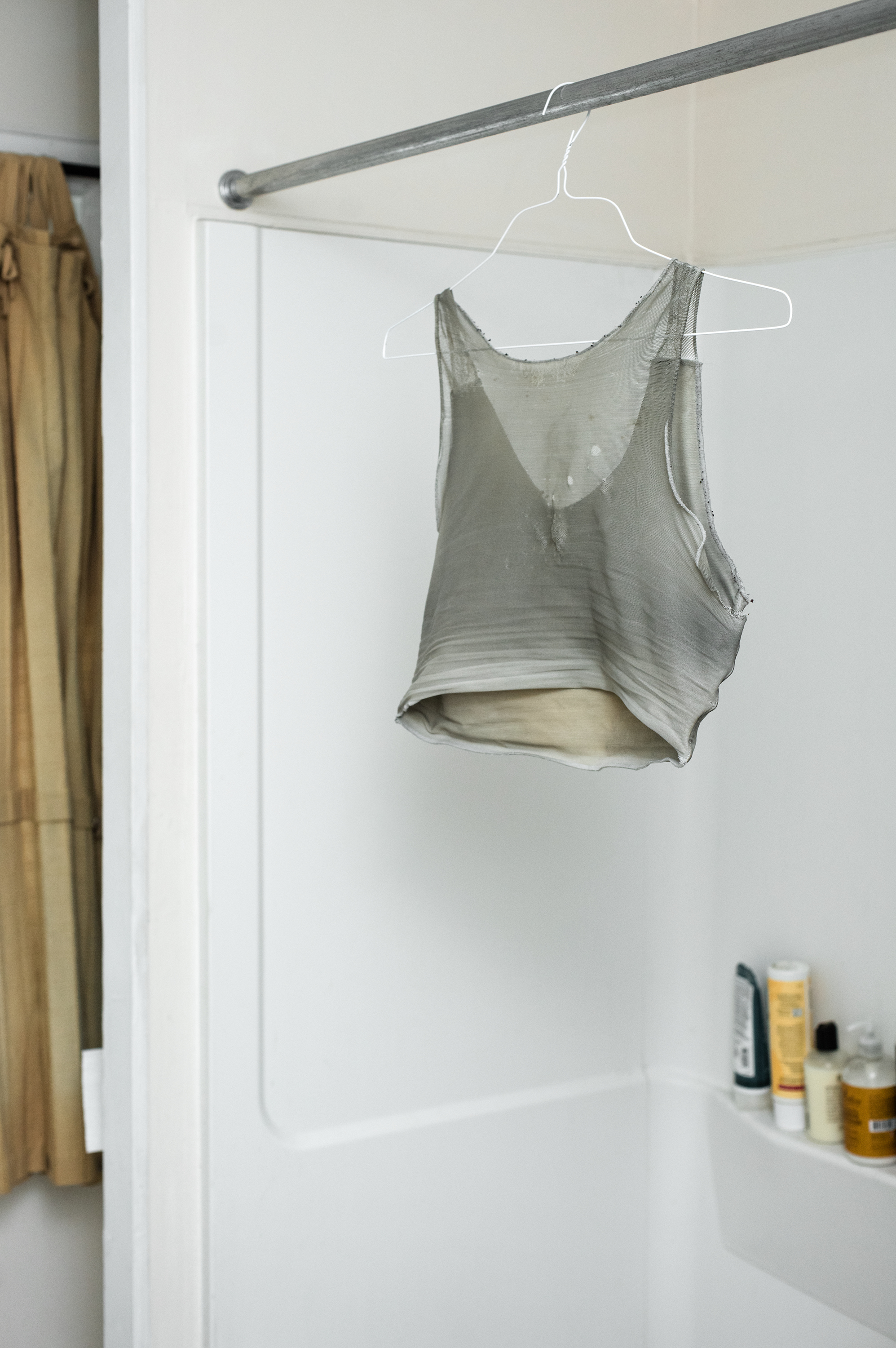
Elle Pérez. Binder, 2015/2018. Archival Pigment print; 44 3⁄8 × 31 inches (112.71 × 78.74 cm). Image courtesy of the artist and 47 Canal, New York.
In this moment—altering, pushing, and manipulating the body—the idea of self-expression enters the work. The theme of expression through performance, especially in conjunction with the body and its modification, runs through Pérez’s work. In one of Pérez’s best-known photographs, Binder, the eponymous garment hangs on a white wire hanger against the backdrop of an empty shower stall. Thinned with age and darkened by wear, the binder takes on a presence of its own. Weighted with the aura of the body, it becomes a stand-in for not only the body but also its effect on the body: constriction, transformation, presentation. Paradoxically, it’s through this restrictive binding that gender fluidity can be performed. As viewers, we sense the body’s desire in this image, hovering like a ghost.

Elle Pérez. Ian, 2017/18. Archival Pigment print; 44 3⁄8 × 31 inches (112.71 × 78.74 cm). Image courtesy of the artist and 47 Canal, New York.
“A constant current within Pérez’s work is an exploration of physical intensity.”
“I’m always drawn to intensity. I channel my own desire for intensity that comes out in the work,” Pérez tells me. This intensity takes many forms, including strong emotions: some of Pérez’s portraits, especially those that originate from their relationship to the sitter, can feel almost unbearably close, as though viewers are eavesdropping on a private conversation between lovers or friends. Yet a constant current within Pérez’s work is an exploration of physical intensity—specifically, the idea of pushing the body to its limits to find a kind of self-expression.
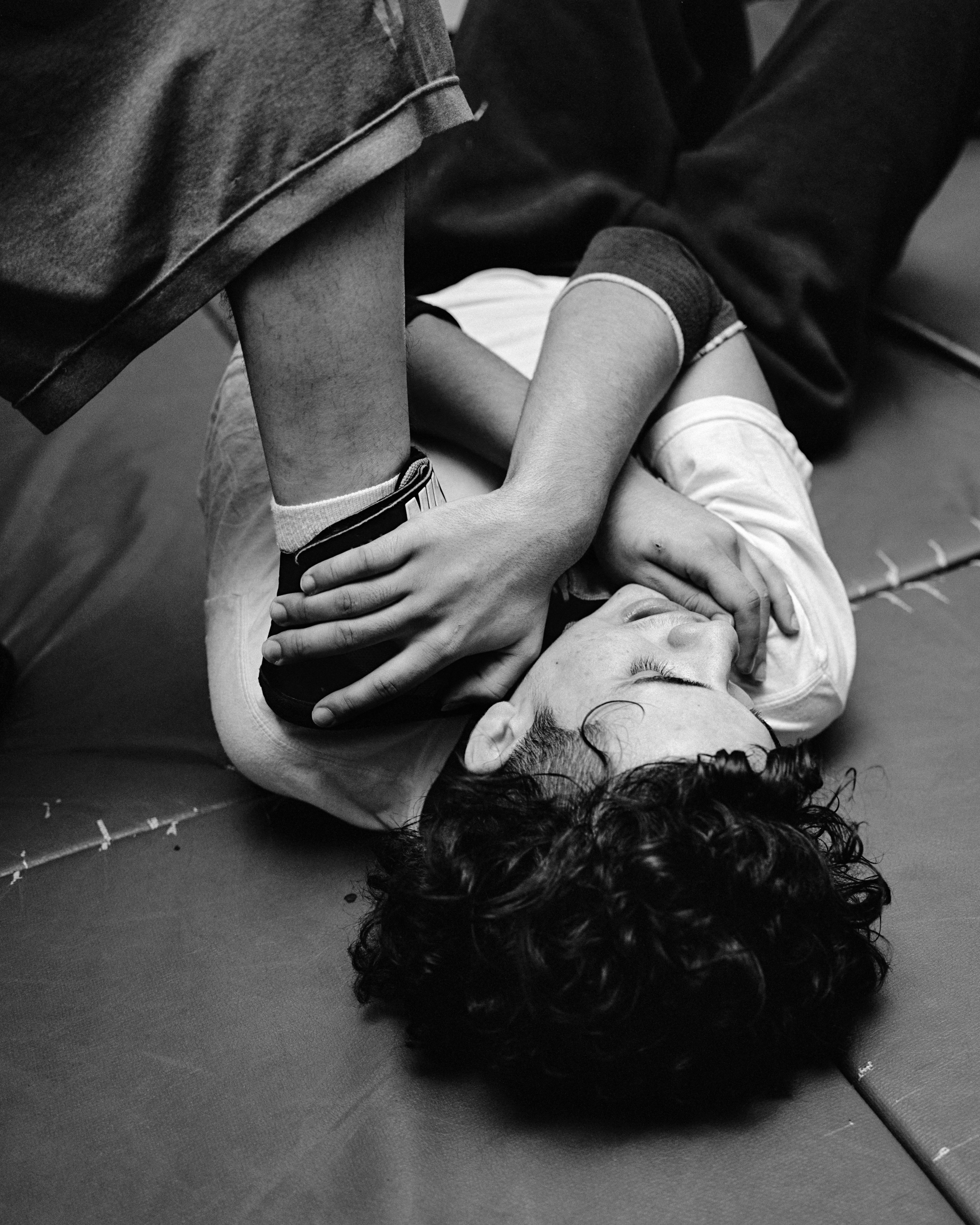
Elle Pérez. untitled (junior), 2014/2018. Digital Silver Gelatin print; 34 × 28 inches (86.36 × 71.12 cm). Image courtesy of the artist and 47 Canal, New York.
“The image’s character changes once more, suggesting a collaboration within a performance. . .”
Pérez’s photographs of entertainment wrestlers in the Bronx exemplify this theme. In this sport, each bout is meticulously choreographed, each move rehearsed. Out of these practices, a fight scene emerges. Pérez’s images of these wrestlers convey an exquisite balance of tenderness and violence. In Untitled (Junior) (2014/2018), a wrestler on his back has his eyes closed and his hands crossed over the foot that steps on his neck. If one ignores the foot (and the figure to which it belongs), the subject seems nearly angelic—long eyelashes and tight curls standing out sharply in the photograph’s wide focus—and in peaceful repose. Yet the foot turns the composition toward violence and asks the viewer to consider the uses of pain.
Looking closer, one can see that the wrestler’s hand is holding the foot that steps upon his neck; his fingers are fanned across it, as in a gesture of support. Now the image’s character changes once more, suggesting a collaboration within a performance, a gesture shared between two actors. One wonders what dialogue they had, to get to this place.

Elle Pérez. t, 2018. Digital Silver Gelatin print; 20 × 14 inches (50.80 × 35.56 cm). Image courtesy of the artist and 47 Canal, New York.
My lunchtime conversation with Pérez turns to how one deals with the fact of a body, not just in art but also in life. When I mention that I’ve recently rediscovered running, Pérez immediately relates to this, describing a newfound Muay Thai practice. “It’s been really nice to push my body through something as intense as Muay Thai,” they tell me. “It’s not about aggression, which I really appreciate.” Rather, Pérez explains, it’s about that same desire for intensity being channeled into a productive, healing place.
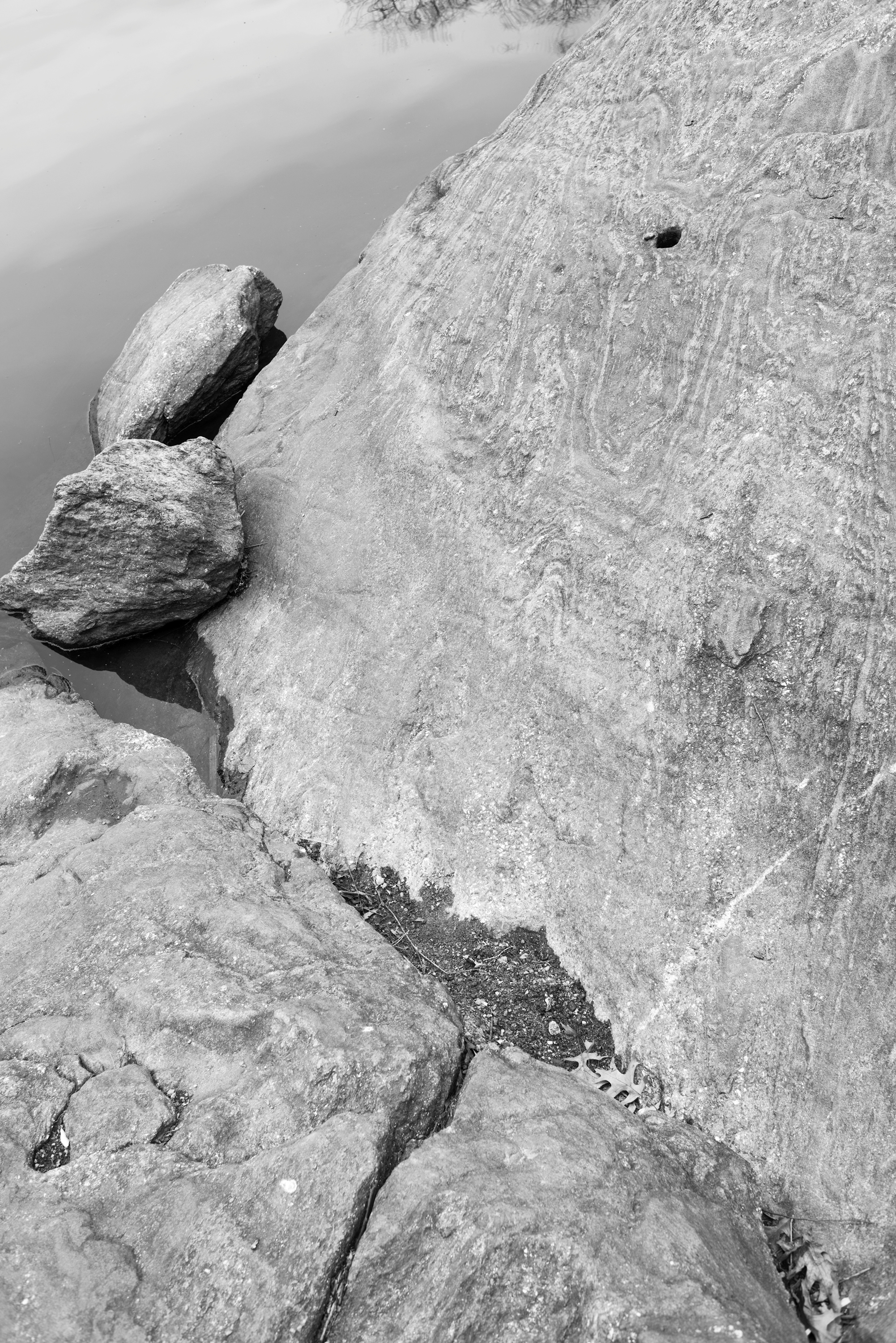
Elle Pérez. Soft Stone, 2015/2018. Digital Silver Gelatin print; 44 3⁄8 × 31 inches (112.71 × 78.74 cm). Image courtesy of the artist and 47 Canal, New York.
As in Binder (2015/2018) sometimes the body takes other forms. In the photograph titled Soft Stone (2015/2018), two rocks, nestled together, jut out of water, appearing like phalluses; it’s an image that’s twinned in another photograph, a self-portrait for you (2016/2018). Sometimes, artifacts of lived experience are written on the body, like surgery scars, piercings, and tattoos. These marks are evidence of the agency of the body.
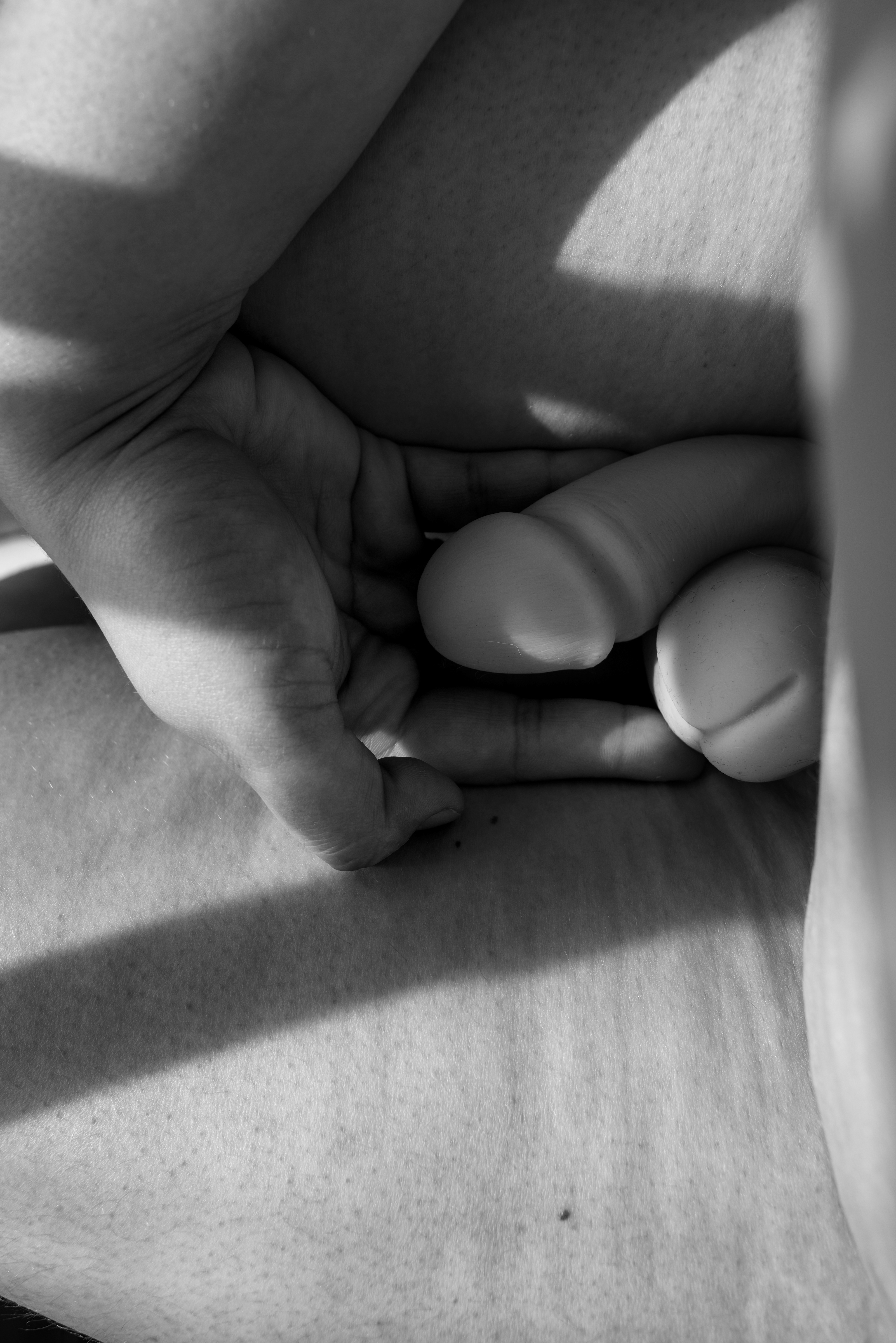
Elle Pérez. a self portrait for you, 2016/2018. Archival Pigment Print; 44 3⁄8 × 31 × 2 inches (112.71 × 78.74 × 5.08 cm). Image courtesy of the artist and 47 Canal, New York.
As Pérez prepares a series of work for inclusion in the 2019 Whitney Biennial, they describe a group of photographs that display a quiet, subtle intensity. The new work includes images that thoroughly engage with the body—including a homage to Catherine Opie’s depictions of sadomasochism—and several portraits, composed with the care and collaboration with their subjects that’s a hallmark of Pérez’s practice. Says Pérez, “This is a process of following.” It is a process of allowing the subject to guide the work, without the work speaking in place of the subject. It is a process of intensely looking at the people, places, and objects that surround us and the choices that we all make, to move ever closer to who we wish to become.
Larissa Pham contributed text to Pérez’s exhibition In Bloom, March 1-April 8, 2018 at 47 Canal. Watch the New York Close Up episode, “Elle Pérez Works Between the Frame” for more insight into Elle Pérez’s collaborative photography practice.
Powered by Versicherungsvergleich
